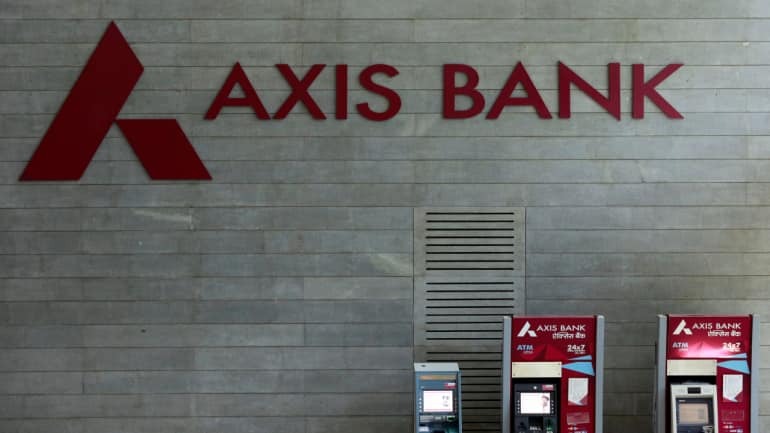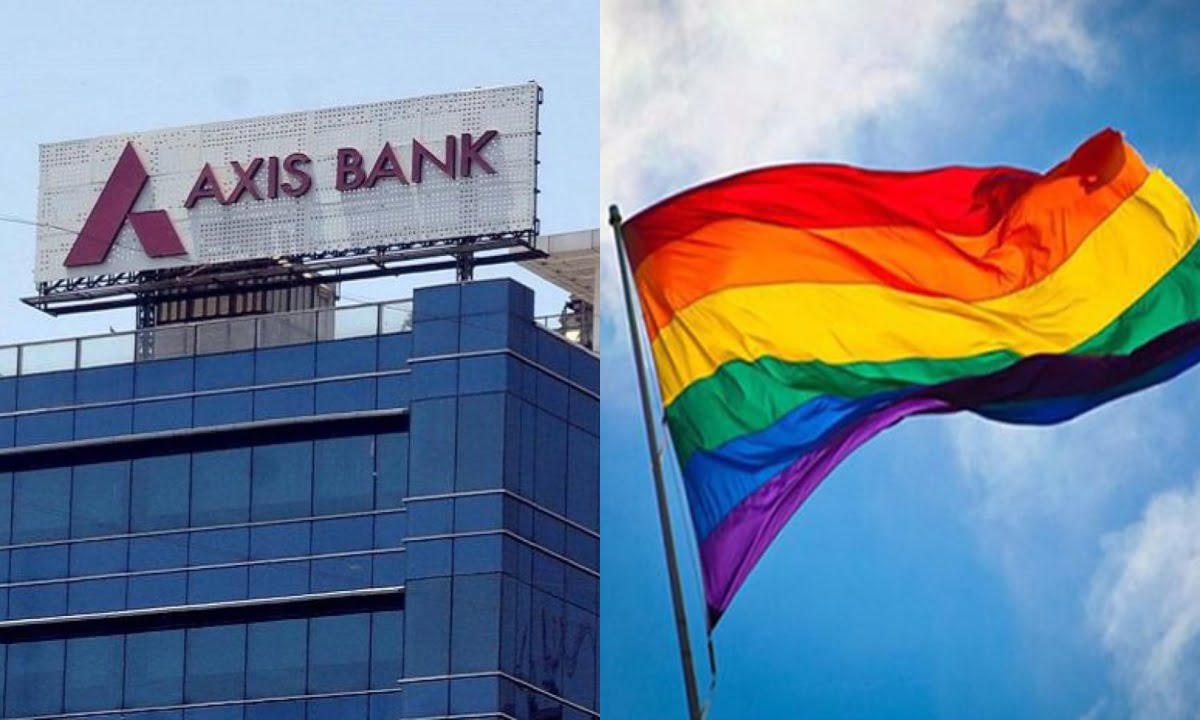Recently, the Axis Bank announced new practices and policies for employees and customers of the LGBTQIA+ community to commemorate the third anniversary of the decriminalisation of Section 377 of the Indian Penal Code by the Supreme Court. The historic verdict of 2018 which decriminalised homosexuality in India was a watershed moment for the members of the queer community.
It upheld the basic Constitutional tenet that individuals cannot be discriminated against based on their sexuality. Under the initiative hash tagged #ComeAsYouAre, the Axis Bank has now released a new charter of gender equitable policies and practices for its employees as well as customers, which are to be implemented in a phased out manner across all the branches of the bank starting from the end of this month.

New policies will now allow same-sex couples to open a joint bank account such as a term deposit or savings account and they can make their partners nominees as well. All employees of the Axis bank can also list their partners for Mediclaim benefits, irrespective of gender, sex and marital status. The staff can choose to use the restroom of their choice in accordance with their gender expression.
Rolled out as part of the bank’s Environmental, Social, and Governance (ESG) commitments, this initiative is a massive step forward in recognising the fluidity of gender and the need for inclusivity in the society.
Performative inclusivity, pinkwashing: The need for more queer inclusive social security schemes
The decriminalisation of Section 377 was indeed revolutionary because, for the first time in India, sexual minorities were legitimised in the eyes of the law. It took many excruciating years of grassroot activism and legal fight for this to become a reality.
One of the judges among the five-judge bench that pronounced the verdict in 2018, Justice Indu Malhotra stated, “History owes an apology to the LGBTQIA+ community for the delay in redressal for the ostracism that they have suffered. The members of this community were compelled to live a fearful life of reprisal and persecution.”
Though the verdict legitimises queer relationships, the discrimination against them still persists in our society at large. In this context, the Axis Bank’s new initiative for the queer community paves the way for a more socially inclusive culture.
Society fails to acknowledge anything beyond the male-female gender binary. Patriarchy puts individuals in a box where the sexual minorities feel cornered and threatened, to simply express themselves for who they are. Though consensual homosexual relationships are not a criminal offence anymore, social acceptance of queer identities is still a distant reality

Customers who identity as genderfluid, trans or non-binary will have the option to use the prefix ‘Mx’ in their bank forms as opposed to the previously listed binary pronouns. Staff members of the bank belonging to the LGBTQIA+ community can also now dress according to their gender identity. The bank has already facilitated gender-inclusive restrooms in their large office spaces.
In a press release, Rajesh Dahiya, the Executive Director of Axis Bank stated, “At Axis, we aim to respect and realise the importance of varied life journeys and distinctive identities that extend beyond the paradigms of gender. Our focus is on diversity, inclusion, and equity. We believe that the policies will foster a culture of innovation and leverage the multiple talent pools that exist in our rich demography.”
Society fails to acknowledge anything beyond the male-female gender binary. Patriarchy puts individuals in a box where the sexual minorities feel cornered and threatened, to simply express themselves for who they are. Though consensual homosexual relationships are not a criminal offence anymore, social acceptance of queer identities is still a distant reality.
Pinkwashing by different brands and organisations during the Pride month every year has also unfortunately become an act of mere tokenism. Amidst such performative marketing techniques, coming up with schemes that legitimise queer relationships through social security avenues like banking is promising.
Also read: Marketing The Rainbow: Queer Advertising Campaigns In India
Lack of identity cards, bottlenecks in binary data collection approach
On paper, though the Axis Bank’s policies look promising for the LGBTQIA+ community, in general, availing banking services remains a challenge for most queer individuals. Most banks ignore the ‘others’ when it comes to gender. This stems from a lack of sensitivity about the social isolation faced by queer individuals and its impact on their daily lives.
In India, anyone other than the cis-gender persons are clubbed under the umbrella term “others” while asked to mark gender, be it on forms for collection of data or for availing financial services. Intersex, genderqueer and genderfluid people get labelled as ‘transgender’. This can be highly stigmatising for people from the community. Dumping all gender identities that are non-binary into a single category is in itself discriminatory.

Availing identity cards for transgenders becomes a huge issue since most banking procedures require them to produce these documents. Despite legal recognition, acquiring identity cards in one’s preferred gender and has been a challenge for most members of the LGBTQIA+ community. The gazette officers handling their documents are often not sensitised enough and lack awareness. A gazette notification is also required to change the name and sex of a person on bank forms.
Lack of identity cards to avail financial services can often trigger gender dysphoria in people from the queer community. An add-on facility in debit and credit cards isn’t available to same-sex couples since gay marriage is not legal yet. Axis Bank’s initiative is sure a welcome change, but addressing these loopholes in the banking system for the queer community is equally important
An identity card is essential for education, healthcare, housing and banking services. According to recent data, almost 85 per cent of the applications by transgender individuals for identity certificates are pending in India. The report of the International Development Research Centre (IDRC), 2020 states that the Indian legislation has failed to address the bottlenecks faced by the queer community in attaining basic identity documents.

Lack of identity cards to avail financial services can often trigger gender dysphoria in people from the queer community. An add-on facility in debit and credit cards isn’t available to same-sex couples since gay marriage is not legal yet. Axis Bank’s initiative is sure a welcome change, but addressing these loopholes in the banking system for the queer community is equally important.
The LGBTQIA+ community is deprived of the basic rights that heterosexual couples and cis-gender persons enjoy and often take for granted in our country. With the prejudice, discrimination and the stigma against them still prevalent, we need genuine allyship and socio-economic inclusion of queer citizens.
Also read: Dear Indian Brands, Pinkwashing Does Not Equal To Allyship
Featured Image Source: Tatva Bodhini
About the author(s)
Rohini Ghosh is an aspiring journalist and a postgraduate Mass Communication student at St. Xavier's University, Kolkata. An intersectional, queer feminist at heart, she is deeply interested in gender and social issues




